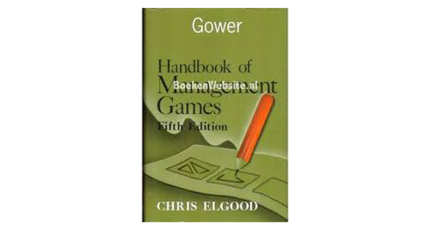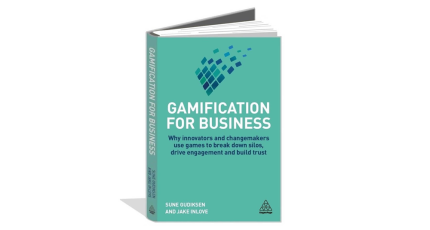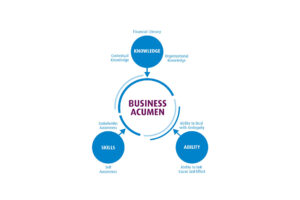Business Simulations and Management Games to build Management Competence, Business and Commercial Acumen
Our range of Business Simulations and Management Games are used in training, development and assessment activities. Our focus is on building management competence. Providing people with the capability to understand their strengths, develop their skills and make an effective contribution to their team, department and wider organisation.

Browse our range or filter them by category. If you don’t see something that fits your requirements, please contact us. We have an extensive catalogue built up through our consultancy work and would be happy to have a conversation with you.
Frequently Asked Questions
What is a business simulation game?
The term business simulation game covers a wide range of activities, anything from a card based face to face activity to an interactive online one. It is used to refer to business focused activities deigned to develop business acumen and management focused activities designed to improve the way in which an organisation is managed. Our thinking has evolved to define a business simulation game as:
“A device through which individuals learn about how businesses and organisations work, and which enables them to improve their performance within their organisation through the development of business and/or inter-personal skills.”
The device offers participants a safe environment in which they can make decisions, experience consequences and understand the relationship between the two. It usually focuses on a problem area in which a better outcome could be achieved if people know more or behaved differently.
Some examples of the different types of simulation game can be found in our Ultimate Guide to Building Business Games and Simulations that Work .
What is a management game?
I will break this into two parts. The word game is used to describe activities in which some, or all, of these characteristics are prominent:
- Human, or humanly controlled, opponents, whose actions have an effect, upon each other and upon the environment.
- An emphasis on competitiveness and ‘winning’.
- An emphasis on pleasure, humour and enjoyment.
- A repetitive cycle of making decisions and encountering a result, allowing the hope of improvement and of ‘doing better next time’.
The addition of the word management indicates a focus on planning, management and control of any organisation or project in circumstances where profit is not the dominant measure of success.
How can a simulation game help my business?
Targeted business simulation games are designed to improve knowledge and develop understanding about the business, which in turn leads to more efficient and effective organisations. For your staff members to be effective they need to understand how your business works, what it takes for the organisation to be successful and, crucially, what contribution they need to make to ensure it is operating effectively and efficiently.
A business simulation is one of the most effective learning processes you can employ. The experience develops participants’ business acumen, helping them to understand what the extent of their contribution is, and raising awareness of how their decisions, behaviour and attitudes affect their colleagues. They will learn to make better decisions for the organisation and form better relationships, giving you a more effective, motivated and knowledgeable workforce.
What are the benefits of a business simulation or management game for my participants?
Business simulations and management games promote learning in a stimulating way. They encourage commitment and engagement from every participant, and the hands-on activities improve confidence and skills across the board. Everyone benefits from learning by doing and the lessons really stick. Your participants will experience the impact of their decision-making, whether good or bad, in a risk-free environment. Working as part of a team your participants will also hone their cooperation and communication skills thus improving their management capability, and participants in managerial roles will learn how the component parts of a system are linked, empowering them to make informed decisions which benefit the whole organisation.
How can simulation games enhance my training event?
We gather feedback from every management game and business simulation we design and run. Here’s what our clients say:
- Active learning keeps our people involved in the whole process.
- Simulations draw out everyone’s strengths across the group.
- Learning by experience is fun and interactive, engaging all the senses.
- Role-playing fosters negotiation and problem-solving skills.
- Business-specific simulations add real relevance to our events.
- Our participants retain new information better.
“the increased retention over time of learning appears to be one of the most consistent findings within the research into the potential of games for learning”
Simon Egenfeldt-Nielsen of the University of Copenhagen
I want to use a business simulation or management game where do I start?
Contact us to set up an initial no obligation meeting over the phone or face to face. We will listen carefully to your requirements and make suggestions as to how we can take your project to the next stage. Following the meeting we will confirm our understanding of your requirement and offer some initial ideas free of charge.
How much will a business simulation or management game cost me?
Every client has specific needs, different participant numbers and varying timescales. We will give you a firm quotation early on in the consultative process, and guarantee that your reusable bespoke simulation will deliver an excellent return on your investment.
Elgood Effective Learning - for improved performance - call us today on 0118 982 1115
Insights
White papers
More and more businesses are turning to business games and simulations to...
In this white paper we explore three universal challenges every business faces...
The financial crisis prompted boardrooms to reevaluate their view of reputation and...
This White Paper discusses Ethics in Business Decision Making. An organisation is...
Organisational change is ubiquitous. According to the CIPD, “All organisations are in...
















